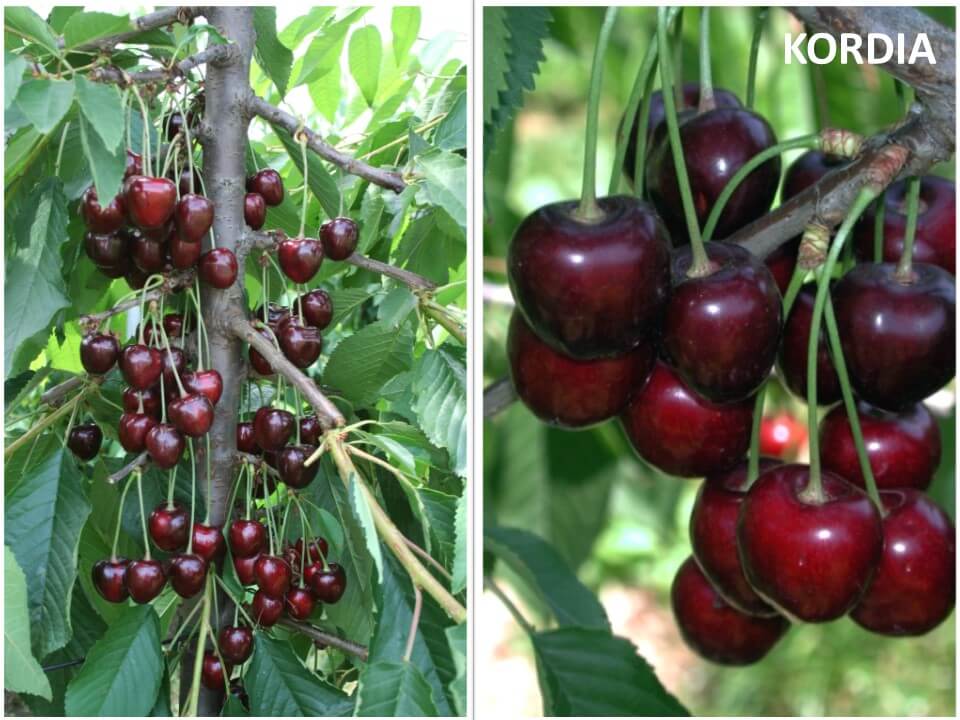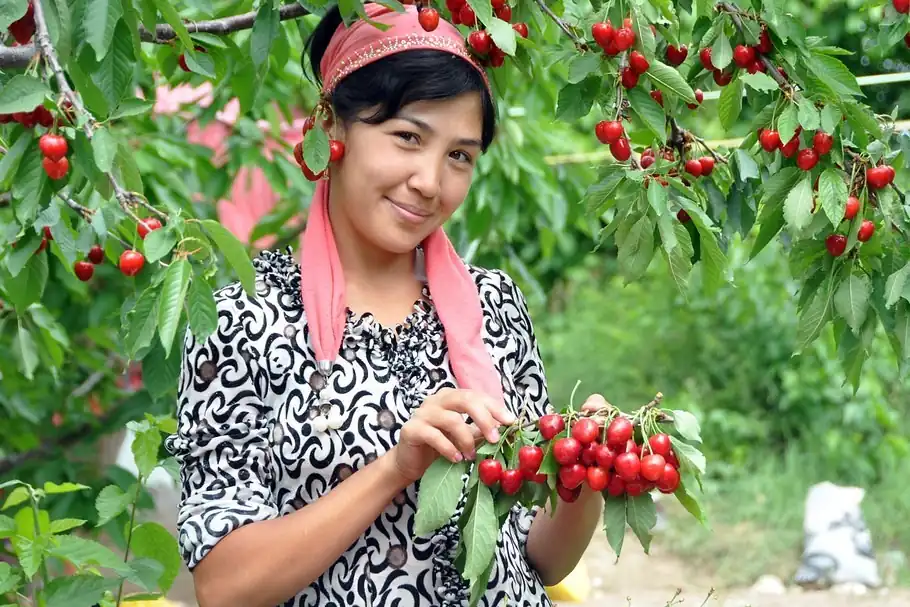Foliar fertilization in sweet cherry cultivation is now a widespread practice, as macro- and micronutrients have a positive effect on both fruit yield and quality.
These water-soluble fertilizers are typically applied through drip irrigation systems (fertigation) or foliar spraying.
A recent study conducted in Moldova analyzed the impact of nanotechnology-based foliar fertilization on the productivity and quality of “Kordia” cherry cultivar, grafted onto “Gisela 6” rootstock and grown in an intensive orchard layout with 4 x 1 m spacing.
Nanotechnology and nutrient composition
The fertilizer used, named “Pistachio Mix Plus NPA”, is a nanotechnological formulation enriched with essential micronutrients such as boron (0.3%), copper (0.5%), iron (2.0%), manganese (0.5%), and zinc (1.0%).
The study, conducted between 2023 and 2024, involved foliar applications at a dose of 2.5 /ha during sweet cherry key phenological stages.
The results showed improvements in both yield and fruit quality.
In treated trees, production increased by 14.9–16.5% in 2023 and by 23.8–30.1% in 2024 compared to the control group.
Yield and environmental impact
In 2023, yields reached 18.11 t/ha, while in 2024, despite less favorable weather conditions, including heavy rains and high temperatures during ripening, yields remained high, peaking at 10.82 t/ha compared to only 8.32 t/ha in untreated trees.
The fertilization also had a significant effect on fruit quality.
The average fruit size in treated groups increased to 28.75 mm, compared to 27.50 mm in the control group.
This size increase was also reflected in fruit weight, which rose from 9.65 g in untreated trees to 11.25 g in the best-performing treated groups.
Fruit quality and marketability
Moreover, there was a notable increase in the proportion of fruits with a diameter greater than 30 mm, rising from 43.5% in the control group to between 52.1% and 57.9% in the treated groups.
The relationship between fruit diameter and weight showed a strong linear correlation (R2 > 0.93), confirming that an increase in size translates directly into an increase in mass.
The study demonstrates that nanotechnology-based foliar fertilization with micronutrients is effective not only in boosting yields but also in improving sweet cherry quality, leading to a greater proportion of fruits in the premium size classes that are more appreciated by the market.
The recommendation from the study is to apply these fertilizations at specific phenological stages: the first application should occur when flower buds take the shape of a white-pink ball, and the first flowers are opening; the second after full petal shed; and the third at the beginning of fruit veraison.
Agronomic strategy and conclusions
This research shows that adopting foliar fertilizers of this kind, when applied at critical growth stages, represents an advanced agronomic practice capable of enhancing sweet cherry tree nutrition, and in turn increasing both yield and fruit size, thereby meeting the high-quality standards demanded by the horticultural supply chain and consumers.
Fonte: Bălan, V., Bilici, I., Russu, S., & Buza, C. (2024). The impact of the foliar fertilization on the sweet cherry tree productivity. Annals of the University of Craiova, Biology, Horticulture, Food products processing technology, Environmental engineering, 29(65).
Andrea Giovannini
University of Bologna (ITA)
Cherry Times - Tutti i diritti riservati










